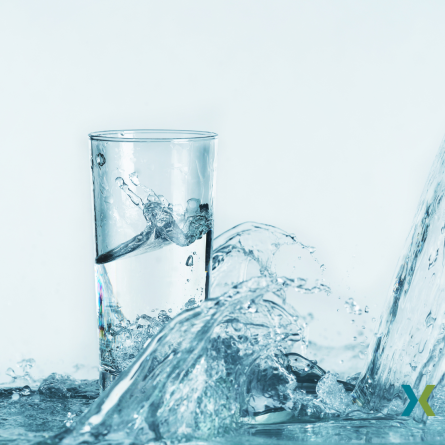As the temperatures rise, it’s important to take steps to stay hydrated and cool to avoid heat-related illnesses. Whether you’re enjoying outdoor activities, working outside, or simply coping with a heatwave, these tips can help you stay safe and comfortable.
Understanding Heat-Related Illnesses
Heat-related illnesses occur when your body can’t cool itself effectively. They range from mild conditions like heat rash and heat cramps to more serious conditions like heat exhaustion and heat stroke. Knowing the signs and taking preventive measures can help you avoid these conditions.
Heat Exhaustion Symptoms:
- Heavy sweating
- Weakness or fatigue
- Dizziness or fainting
- Nausea or vomiting
- Headache
- Muscle cramps
Heat Stroke Symptoms:
- High body temperature (103°F or higher)
- Hot, red, dry, or damp skin
- Rapid, strong pulse
- Confusion
- Unconsciousness
If you or someone else shows signs of heat stroke, seek medical help immediately.
How to Stay Hydrated and Cool
Tips for Staying Cool
- Stay Indoors During Peak Heat
- The sun is usually strongest between 10 a.m. and 4 p.m. If possible, stay indoors during these hours. Plan outdoor activities for early morning or late evening when it’s cooler.
- Wear Light Clothing
- Choose lightweight, loose-fitting, and light-colored clothing. Natural fabrics like cotton can help keep you cooler by allowing your skin to breathe.
- Use Fans and Air Conditioning
- If you don’t have air conditioning at home, spend time in air-conditioned public places like shopping malls, libraries, or community centers. Fans can also help, but during extreme heat, they may not be enough.
- Take Cool Showers or Baths
- A cool shower or bath can help lower your body temperature. You can also use a damp cloth on your neck, wrists, and forehead to cool down.
- Limit Physical Activity
- Avoid strenuous activities during the hottest part of the day. If you must exercise, do so during cooler times and take frequent breaks.
Tips for Staying Hydrated
- Drink Plenty of Fluids
- Aim to drink at least 8-10 glasses of water a day, and increase your intake if you’re sweating a lot. Carry a water bottle with you and sip regularly.
- Avoid Dehydrating Beverages
- Limit drinks that can dehydrate you, such as alcohol, caffeine, and sugary beverages. These can increase fluid loss and make it harder for your body to cool down.
- Eat Water-Rich Foods
- Include fruits and vegetables with high water content in your diet, such as watermelon, cucumbers, oranges, and strawberries. These can help keep you hydrated and provide essential nutrients.
- Use Electrolyte Solutions
- If you’re sweating heavily, consider drinking sports drinks or electrolyte solutions to replenish lost minerals. This can help prevent dehydration and maintain electrolyte balance.
- Monitor Your Hydration Status
- Pay attention to the color of your urine. Pale yellow indicates proper hydration, while dark yellow or amber may suggest dehydration.
Additional Tips for Staying Safe
- Protect Your Skin
- Apply a broad-spectrum sunscreen with an SPF of at least 30, even on cloudy days. Reapply every two hours and after swimming or sweating.
- Stay Informed
- Keep an eye on weather forecasts and heat advisories. Plan your activities accordingly and be aware of any warnings for extreme heat.
- Check on Vulnerable Individuals
- Older people, young children, and those with chronic illnesses are more susceptible to heat-related illnesses. Check on them regularly and ensure they have access to a cool environment and plenty of fluids.
- Know the Signs of Dehydration
- Symptoms of dehydration include dry mouth, dark urine, dizziness, and fatigue. If you experience these symptoms, increase your fluid intake and seek shade or a cool place.
Conclusion
Stay cool and hydrated to prevent heat-related illnesses during hot weather. At Next Level Urgent Care, we’re here to help you stay healthy and provide care when you need it. If you experience symptoms of heat exhaustion or heat stroke, seek medical attention immediately.
![NL Wordmark [Gradient] NL Wordmark [Gradient]](https://www.nextlevelurgentcare.com/wp-content/uploads/elementor/thumbs/NL-Wordmark-Gradient-7fm1iv6f0zylwqrxpy8kifrnrzsluqzzzofvqvs6smo.png)
